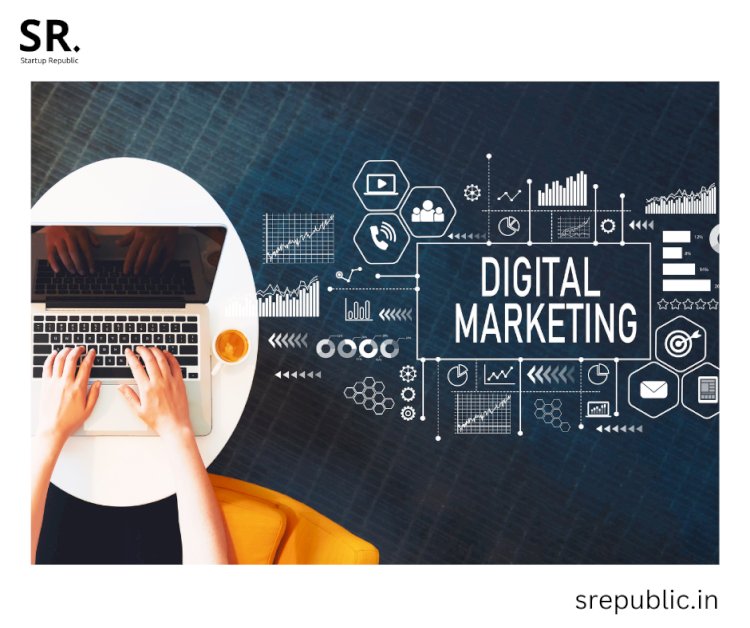Digital Marketing for Startups: The Best Tools and Strategies for Success
This blog outlines the best digital marketing tools and strategies that startups can use to reach their target audience, build brand awareness, and increase conversions. The six tools and strategies discussed in the blog include Google Analytics, SEO, social media marketing, email marketing, content marketing, and pay-per-click advertising. By leveraging these tools and strategies, startups can create a comprehensive digital marketing plan that meets their unique business needs. Overall, digital marketing is an essential component of any startup's marketing strategy in today's digital age.

In today's digital age, startups need to leverage the power of digital marketing to reach their target audience and stand out in a crowded marketplace. Digital marketing offers a range of tools and strategies that can help startups drive traffic, generate leads, and increase conversions. In this blog, we will discuss the best digital marketing tools and strategies that startups should use.
-
Google Analytics: Google Analytics is a powerful tool that allows startups to track and analyze website traffic. It provides valuable insights into user behavior, including the pages they visit, the amount of time they spend on the site, and the actions they take. Startups can use this information to optimize their website and improve user experience.
-
SEO: Search engine optimization (SEO) is the practice of optimizing a website to rank higher in search engine results pages (SERPs). Startups can use SEO to increase their visibility online and attract more organic traffic to their website. SEO involves optimizing website content, building backlinks, and using relevant keywords.
-
Social Media Marketing: Social media platforms like Facebook, Instagram, and Twitter provide startups with a cost-effective way to reach their target audience. Startups can use social media to build brand awareness, engage with customers, and promote their products or services. Social media marketing involves creating and sharing content on social media platforms, running social media advertising campaigns, and engaging with followers.
-
Email Marketing: Email marketing is a highly effective way to nurture leads and drive conversions. Startups can use email marketing to send newsletters, promotional offers, and other types of content to their subscribers. Email marketing involves building an email list, creating engaging content, and tracking metrics like open rates and click-through rates.
-
Content Marketing: Content marketing involves creating and sharing valuable content that educates, entertains, or informs the target audience. Startups can use content marketing to build brand awareness, establish themselves as thought leaders, and drive traffic to their website. Content marketing involves creating blog posts, videos, infographics, and other types of content.
-
Pay-Per-Click Advertising: Pay-per-click (PPC) advertising involves placing ads on search engine results pages or social media platforms and paying each time someone clicks on the ad. Startups can use PPC advertising to drive traffic to their website, generate leads, and increase conversions. PPC advertising involves selecting relevant keywords, creating ad copy, and setting a budget.
In conclusion, startups can leverage a range of digital marketing tools and strategies to reach their target audience, build brand awareness, and drive conversions. The above-listed tools and strategies are a great starting point for startups looking to create a strong online presence. By combining these tools and strategies, startups can create a comprehensive digital marketing plan that meets their unique business needs.
























